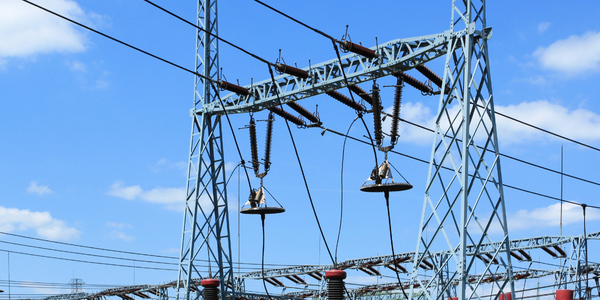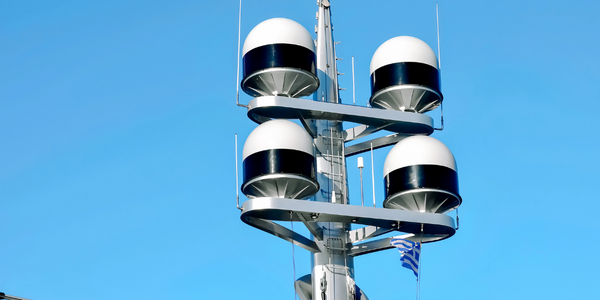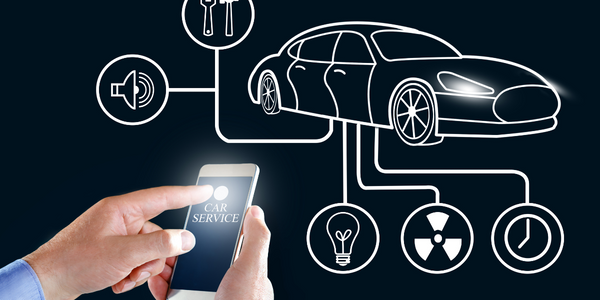Customer Company Size
Large Corporate
Region
- Europe
Country
- Italy
Product
- Forcepoint Web Security
- Forcepoint Email Security
Tech Stack
- Cloud intelligence
Implementation Scale
- Enterprise-wide Deployment
Impact Metrics
- Productivity Improvements
- Digital Expertise
- Employee Satisfaction
Technology Category
- Cybersecurity & Privacy - Cloud Security
- Cybersecurity & Privacy - Network Security
Applicable Functions
- Discrete Manufacturing
- Business Operation
Use Cases
- Cybersecurity
- Edge Computing & Edge Intelligence
Services
- System Integration
- Cloud Planning, Design & Implementation Services
About The Customer
Marcegaglia is the leading steel processing company in the world. Global operations include 7,000 employees, 60 commercial units, 210 representations, and 43 factories spread over a total area of 6 million square meters. Each year, it processes more than 5 million tons of steel and produces 5,500 kilometres of stainless steel and carbon steel products daily for over 15,000 customers. The Marcegaglia family founded the company in 1959 and is headquartered in Gazoldo degli Ippoliti (Mantova), Italy.
The Challenge
Marcegaglia, a leading steel processing company, relies heavily on the integrity of its technology and data to support its production activities and global strategies. The company employs about 2,000 licensed users with personal accounts and email addresses. In 2008, Renzo Rossi, CTO of Marcegaglia, began looking for a more efficient and secure means for thousands of users to access web content safely. Rossi recognized the need for a more efficient navigation process, company-wide, while protecting employees and data in real-time implementing and improving internal technology hand in hand with the development of the risks of the network.
The Solution
In 2008, Marcegaglia installed Forcepoint Web Security. This decision stemmed from extensive research and after testing alternative solutions. Marcegaglia took the opportunity to test the features of the Forcepoint Web solution which made the decision an easy one. Part of the Forcepoint Web Security solution was Forcepoint’s Cloud intelligence, which provides real-time threat analysis. This introduced an advanced level of threat control and protection to Marcegaglia’s critical data, providing industry-leading defense against advanced malware, blended threats and spam. This positive first experience was a key factor when Marcegaglia decided to upgrade and extend protection to corporate email accounts as well. It chose Forcepoint Email Security for its ability to isolate suspicious links embedded in emails and analyze the destination as soon as a user attempts to open them from any device.
Operational Impact

Case Study missing?
Start adding your own!
Register with your work email and create a new case study profile for your business.
Related Case Studies.

Case Study
Enel Secures Italian Power Generation Network
Electric energy operators around the world are working to increase the reliability and cyber resiliency of their systems. This includes Enel, a global power company that manages and monitors the Italian power grid. This grid:• Serves 31 million customers• Has a net installed energy capacity exceeding 31 gigawatts• Includes more than 500 power generation plants,including hydroelectric, thermoelectric, and wind• Is managed and monitored by Enel 24/7/365• Is operated by Terna, the Italian Transmission System Operator (TSO)Enel is responsible for the availability of the grid’s underlying ICS and industrial network. It also manages Regional Control Centers and Interconnection Centers which connect with the TSO. The TSO manages the flow of energy to the grid plus controls and remotely regulates the power generation of power plants, increasing and decreasing power production as required. The complex system of interaction and cooperation between Enel and the TSO has strong security implications as well as operational and business challenges.

Case Study
VIPER Aid to Acoustic Positioning
Applied Acoustics Easytrak Portable acoustic navigation system can undertake a wide range of tracking and positioning tasks for seabed mapping, towfish tracking and controlling robotic vehicles. It is also used to locate subsea divers, so is critical to the safety of personnel. To deal with difficult operating environment, a robust single board computer is required.

Case Study
A Smarter Brain for Your Train…
Have you ever felt overloaded by too much sensory input? The results can be problematic, even risky if you’re driving at the time. The same holds true for trains, ships, oil rigs, and many other industrial assets. The data processing challenges on these complex machines are growing rapidly as the number of sensors increases; yet so are the opportunities to transform operations by using all the available data effectively. A modern locomotive, for example, has as many as 200 sensors generating more than a billion data points per second.

Case Study
A repeatable model for industrial data intelligence
Exara’s oil and gas client required a reliable way to gather, store, and process data from sophisticated machine assets in remote oil field sites. These harsh, real world environments present significant challenges for high performance computing devices.

Case Study
Securing the Connected Car Ecosystem
In-vehicle communications and entertainment system hosts high-value or sensitive applications. API libraries facilitate communication and sharing of vehicle data. These API libraries are vulnerable to reverse engineering and tampering attacks and may even result in loss of passenger safety. Attackers can inject malware that may be able to migrate to other in-car networks such as the controller-area-network (CAN) bus which links to the vehicle’s critical systems. Software provided for dealers to interface with cars through the OBD2 port is vulnerable to reverse engineering and tampering attacks. Hackers may be able to abuse these tools to inject malicious code into the ECUs and CAN bus. Attackers can lift the cryptographic keys used, and use that to build their own rogue apps/software. Their cloned version of the original app/software may have altered functionality, and may intend to gain access to other in-car networks.

Case Study
IIC - Edge Intelligence Testbed
A test environment is needed for algorithms and architectures that meets a common set of requirements for many testbeds (see "Testbed in Depth")GOAL:A test facility that can be configured into complex edge compute environments, in order to further the state-of-the-art in edge analytics and algorithms







